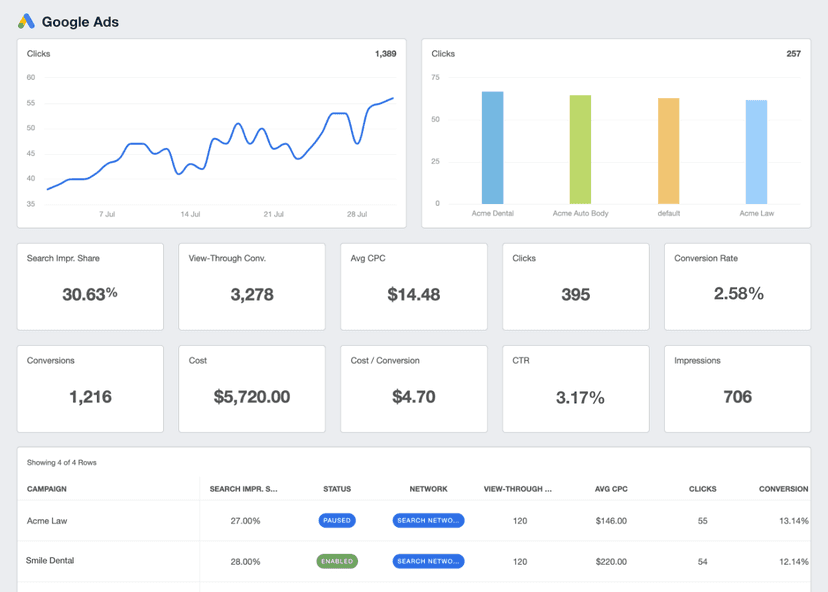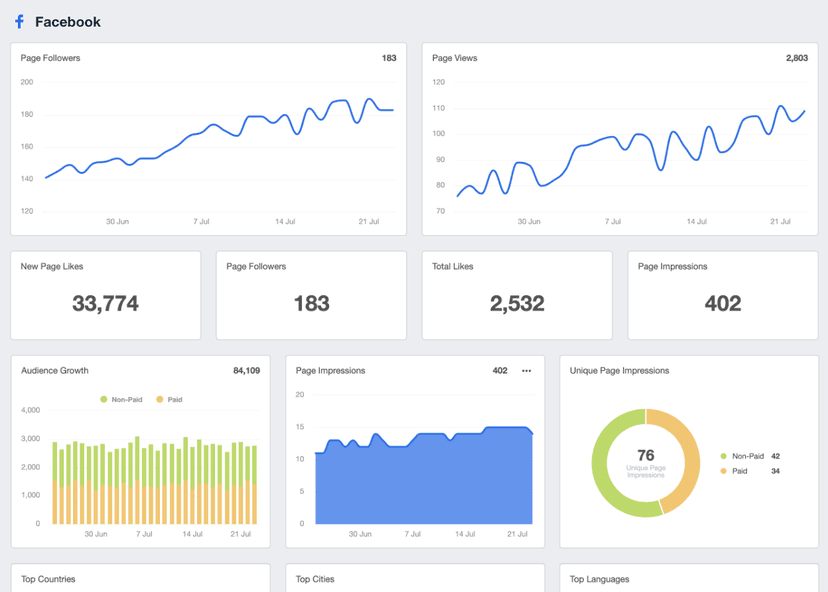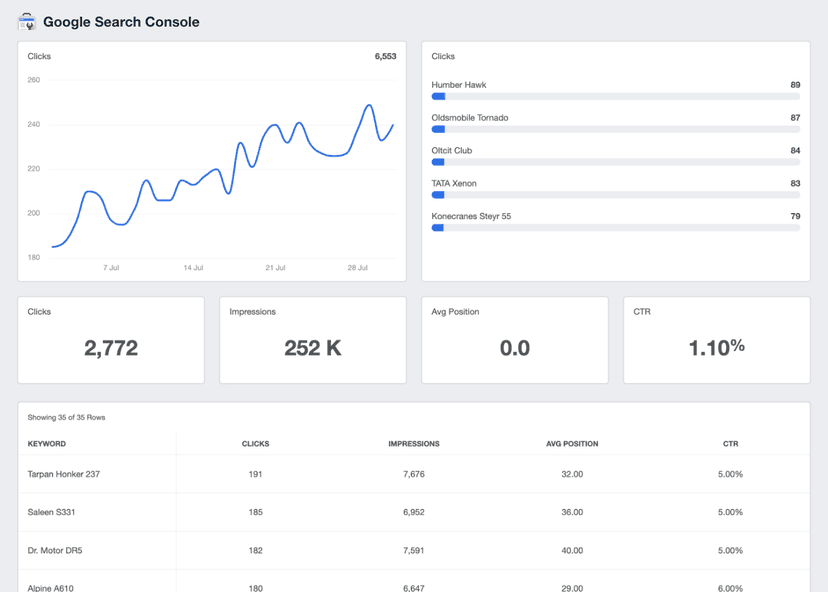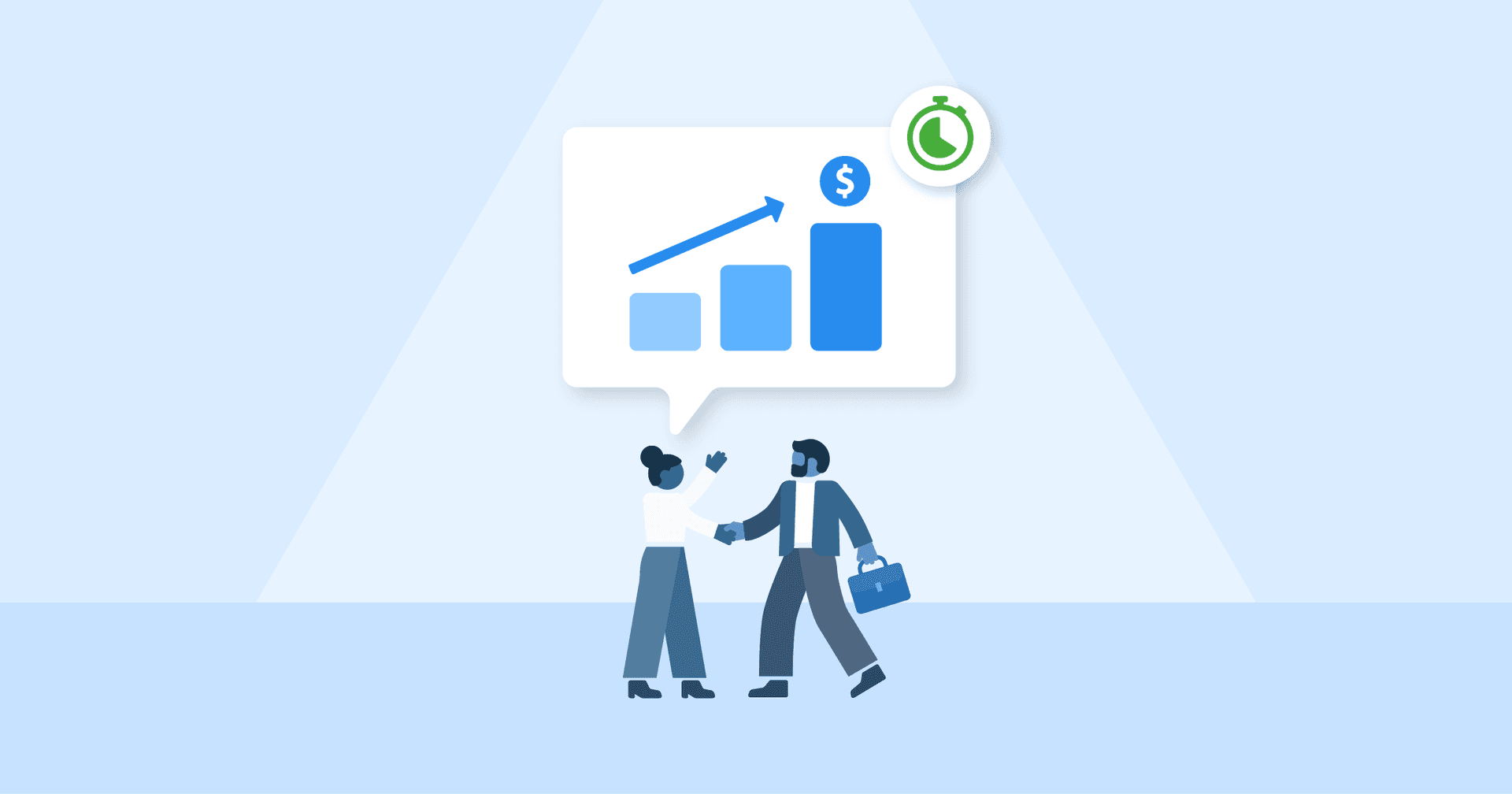Operating Expenses (OPEX)
Monitor Operating Costs
Keep track of recurring operating expenses to ensure efficiency.
Expense Allocation
Assess how much operating expense is being allocated to essential business functions.
Performance Optimization
Evaluate OPEX performance to improve profitability and minimize waste.
Revenue Contribution
Track how costs incurred contribute to generating revenue and sustaining business growth.
Why Operating Expenses Are Critical to Agency Efficiency
Operating expenses are essential for keeping a marketing agency running smoothly on a day-to-day basis. These expenses, which include payroll, rent, utilities, and marketing costs, represent the core functions of an agency. Without well-managed OPEX, daily operations could suffer, leading to inefficiencies that may slow growth.
By tracking and optimizing variable costs, agencies improve financial performance, reduce unnecessary costs, and ensure that funds are directed toward high-impact areas. Monitoring OPEX helps maintain operational efficiency and ensures that an agency scales sustainably without compromising essential services.
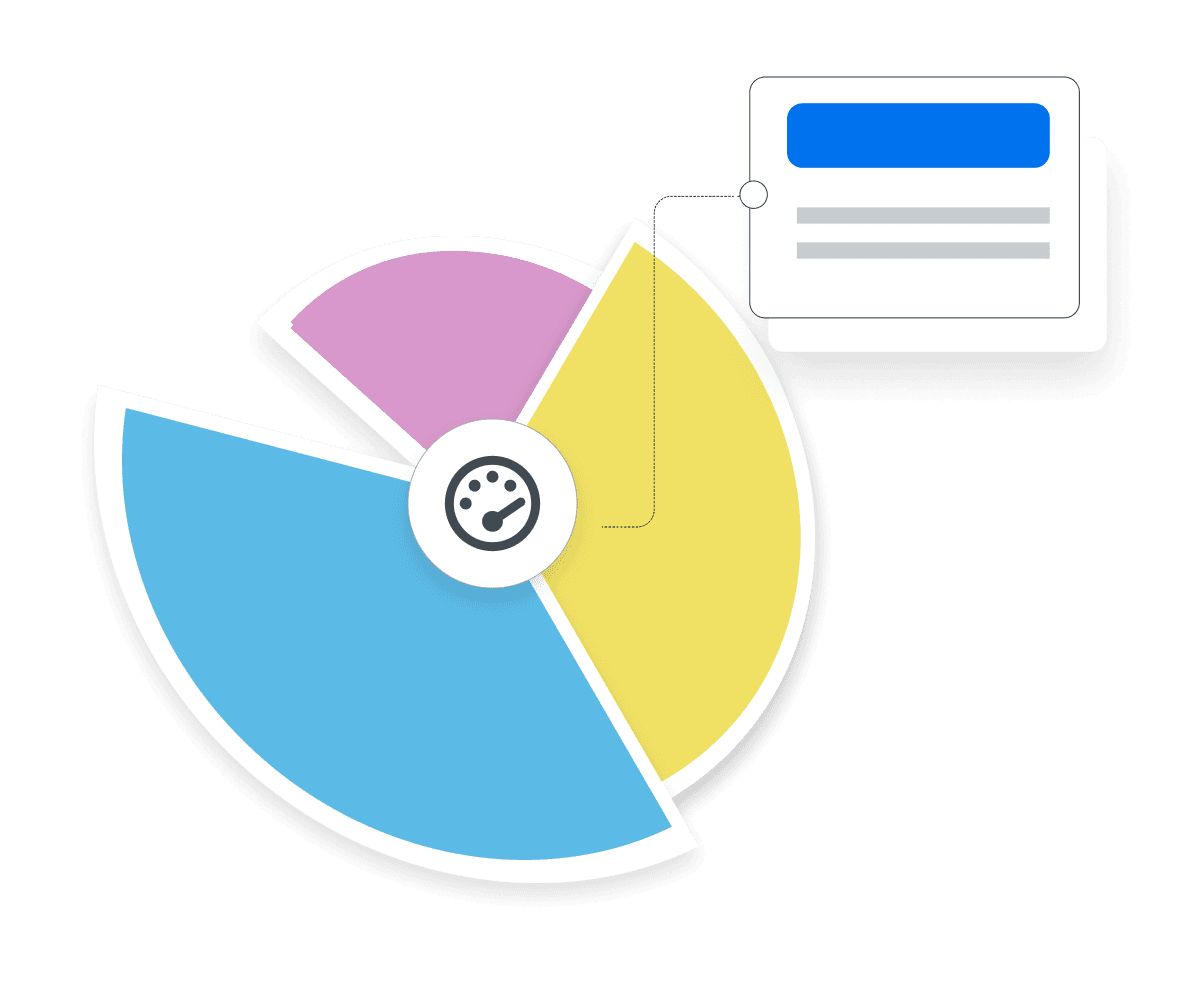
Make Reporting Smarter and Simplify Your Day-to-Day Operations with AgencyAnalytics
The Difference Between OPEX and CAPEX
Understanding the difference between operating expenses (OPEX) and capital expenditure (CAPEX) is essential for managing an agency’s finances and for tax purposes. OPEX expenses cover the costs a company incurs during day-to-day operational activities, like payroll, rent, and utilities. These are recurring expenses, and agencies can deduct operating expenses from their taxable income, making efficient OPEX management key to profitability.
In contrast, CAPEX refers to major purchases or long-term investments in fixed assets such as new technology, office equipment, or property. These expenditures help expand the agency’s capabilities and are capitalized on the balance sheet. While agencies calculate operating expenses monthly or quarterly, CAPEX investments are typically tracked over multiple years. Although not all CAPEX assets are tax deductible, businesses may benefit from asset depreciation as a tax deduction over the asset's useful life.
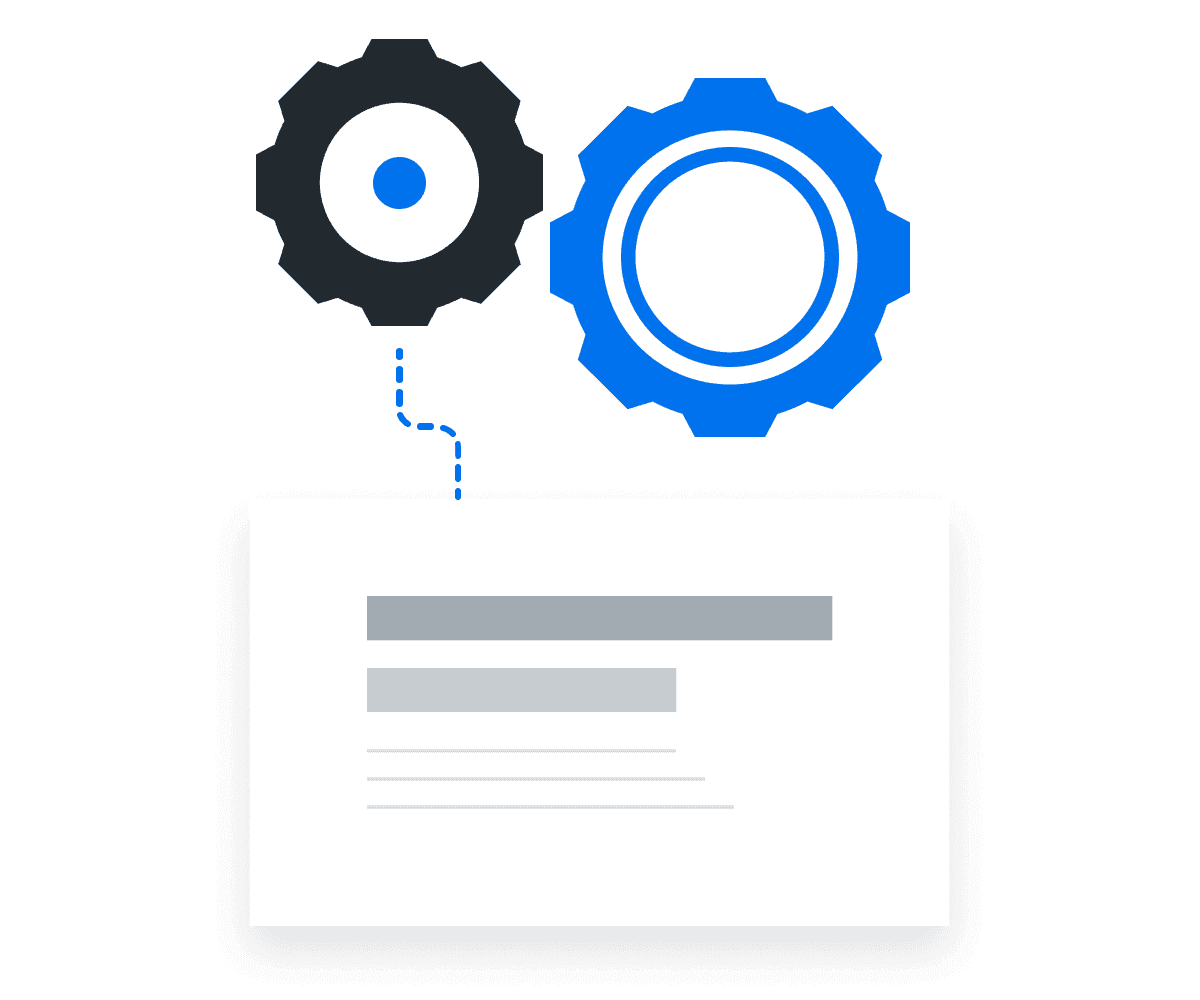
How Operating Expenses Relate to Key Agency KPIs
Operating expenses influence many critical financial metrics that reflect an agency's overall economic health. OPEX directly impacts the profit margin and is a significant factor in determining net income. Reducing unnecessary OPEX improves an agency’s profitability without requiring significant changes in revenue streams.
Additionally, OPEX is closely tied to cash flow and liquidity. Agencies that track OPEX alongside CAPEX and other financial metrics ensure that daily operations are balanced with long-term investments. Monitoring OPEX alongside KPIs like the Rule of 40 helps agencies manage costs and maintain a competitive financial position.
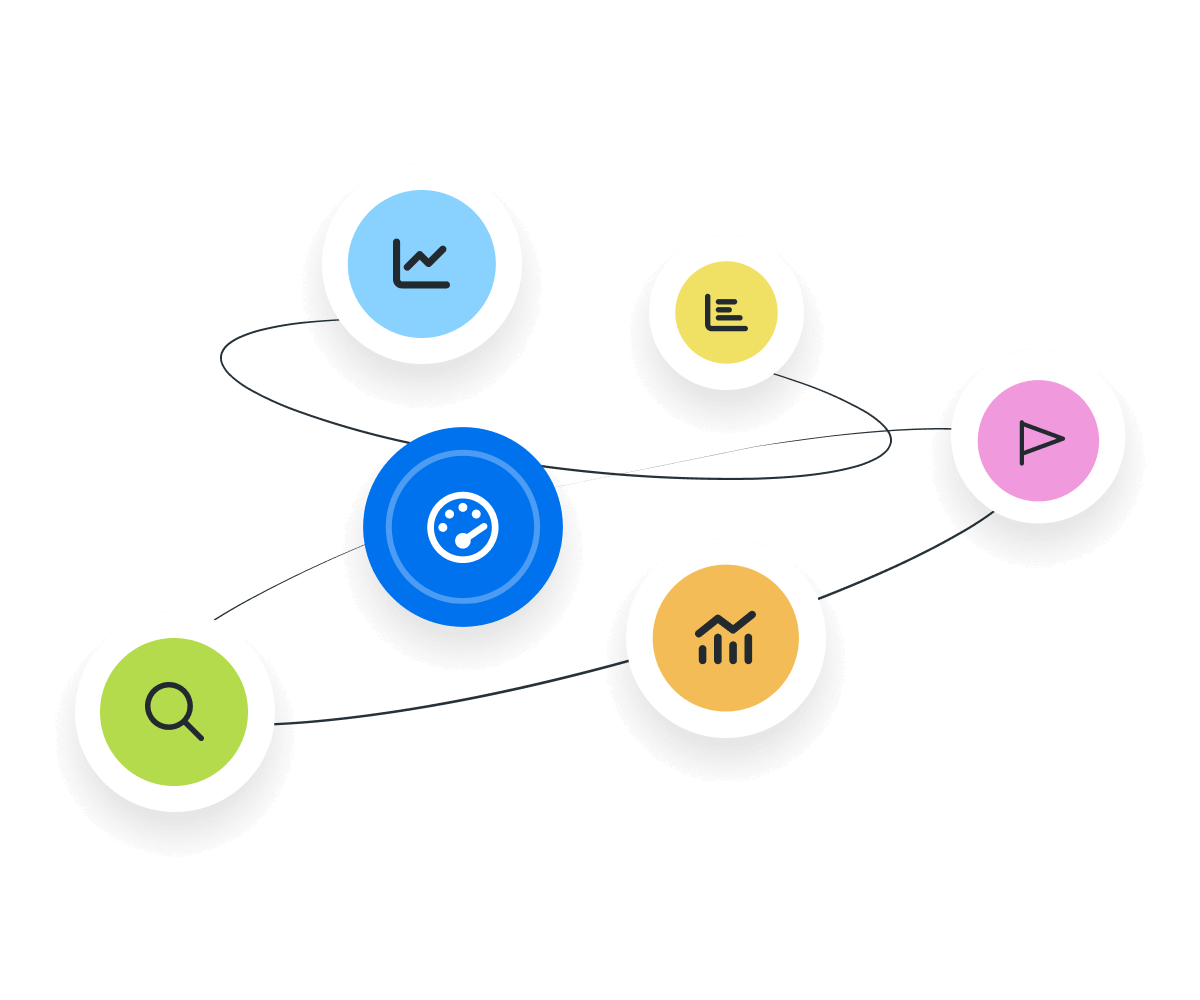
Optimizing OPEX for Operational Efficiency and Growth
Strategic management of operating expenses is vital for boosting profitability and maintaining growth. Agencies can reduce unnecessary costs and improve margins by analyzing where resources are allocated and how effectively they contribute to the agency’s core services.
However, cutting costs indiscriminately may lead to diminished service quality or reduced employee productivity. The key is to optimize OPEX without sacrificing operational efficiency. Focus on high-impact areas where investments drive tangible results, such as investing in employee training or automating routine processes to streamline operations and improve productivity.
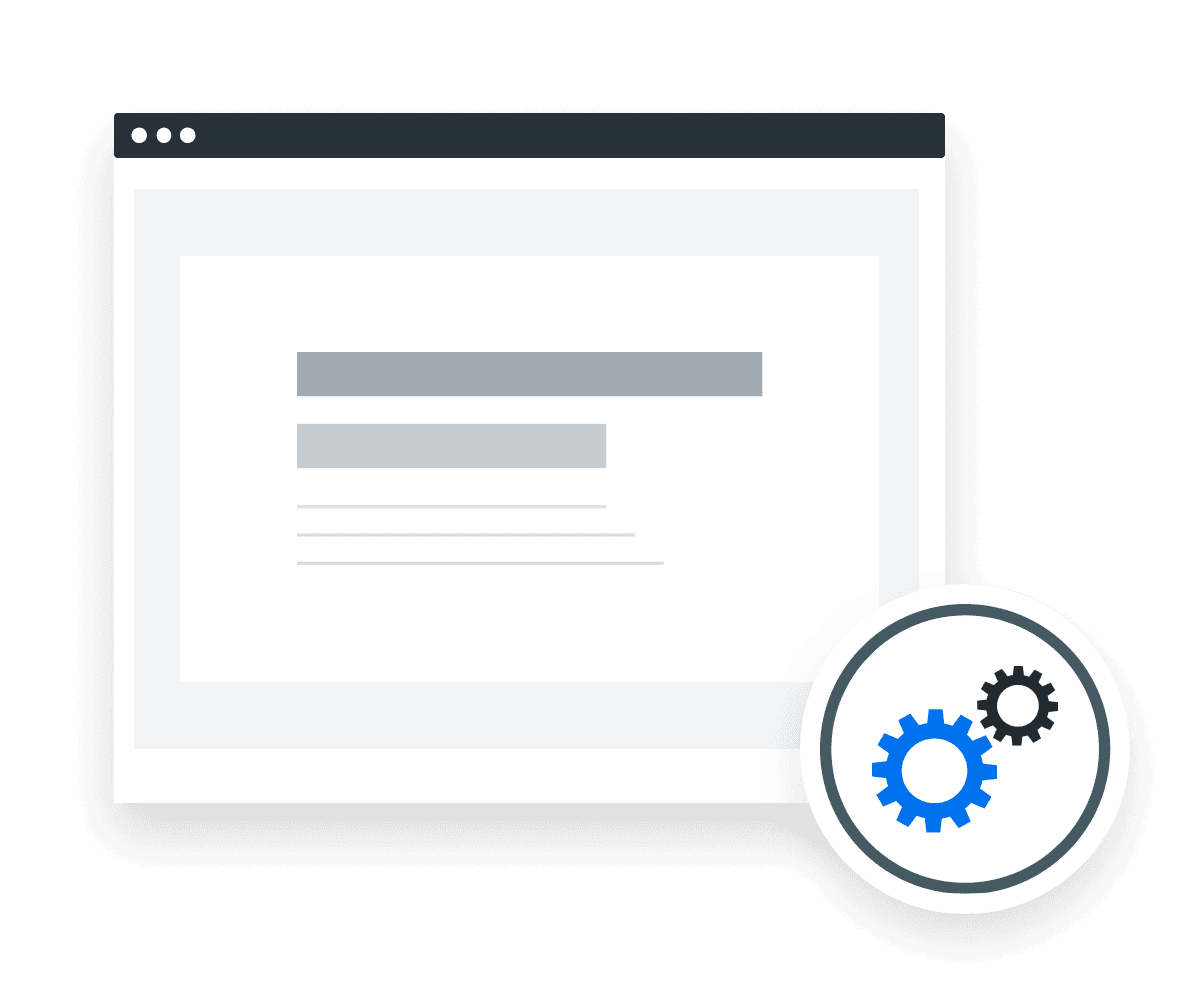
Top Factors To Consider When Managing Operating Expenses/Operational Activities
Managing OPEX requires careful consideration of both current needs and future scalability. First, agencies should differentiate between essential expenses and non-essential ones. Items like salaries, software subscriptions, and office rent are critical for maintaining operations, while other costs may be more discretionary.
While expenses like office supplies, marketing spend, and subscriptions are crucial, it’s essential to avoid waste. Regularly reviewing OPEX allows agencies to identify areas where they can reduce costs without impacting critical services.

Monitor OPEX for Continuous Improvement
Managing operating expenses requires more than tracking costs—it’s about continuous improvement. Agencies should regularly review their OPEX to ensure that resources are used efficiently and aligned with their long-term growth strategies.
By analyzing key performance indicators related to OPEX—such as profit margins, productivity rates, and cash flow impacts—agencies make informed decisions about where to adjust spending. Regularly revisiting these expenses ensures that the agency operates efficiently while keeping costs in check.
If you know your costs, you can determine what profit you wish to make consistently. Once you know your cost and desired profit, it is a simple matter of expanding your leads and closing skills to land the quantity of customers you need to make your business profitable and growing.
How To Track Operating Expenses
Agencies commonly track OPEX by reviewing their monthly or quarterly income statements, which categorize all operating expenses. These expenses include payroll, rent, utilities, marketing, and software. The income statement provides a clear view of the costs incurred during day-to-day operations, helping agencies see how these costs impact profitability.
Operating Expense Formula Example
What Is a Good OPEX-to-Revenue Ratio?
A good OPEX-to-Revenue Ratio varies by industry, but it typically falls between 60% and 80% for marketing agencies.
A lower ratio indicates that an agency is running more efficiently, with a larger revenue share available for reinvestment in growth. Higher ratios signal excessive operating expenses, which could limit profitability.
What Is a Bad OPEX-to-Revenue Ratio?
When operating expenses consume more than 80% of revenue, it hinders the company's ability to reinvest in growth, reduce debt, or improve profitability.
A high operating expense ratio often signals inefficiencies, such as excessive overhead or poorly managed costs. If left unchecked, this may lead to cash flow issues and hinder long-term sustainability, making it difficult for the agency to scale or respond to market changes.
How To Set OPEX Goals Based on Growth Stage
OPEX goals should align with the agency's growth stage. Early-stage agencies may need to invest heavily in marketing, technology, or talent acquisition, which increases OPEX. As the agency grows, the focus should shift to optimizing these expenses to improve margins and profitability.
For mature agencies, managing OPEX becomes about fine-tuning operations, reducing waste, and ensuring that resources are allocated efficiently. Regularly reviewing financial statements helps ensure that OPEX goals are aligned with cash flow and long-term economic sustainability.
Why Technology and Software Are Essential Operating Expenses
Technology and software are some of a modern marketing agency's most critical operating expenses. Software subscriptions, including tools like marketing automation platforms, analytics dashboards, and CRM systems, are recurring costs but essential for maintaining efficiency and delivering high-quality services.
These expenses help agencies streamline operations, manage more campaigns, and generate valuable insights for clients. Investing in the right technology ensures that agencies operate efficiently and scale their services.
Why Employee Salaries Are Core Operating Expenses
Employee salaries are among the largest operating expenses for any agency and are essential for maintaining high-quality service delivery. Talent is a critical resource in marketing, and agencies must invest in skilled employees to remain competitive.
By ensuring that payroll aligns with current client demands and future growth plans, agencies can maintain a strong team that supports operational efficiency and client satisfaction.
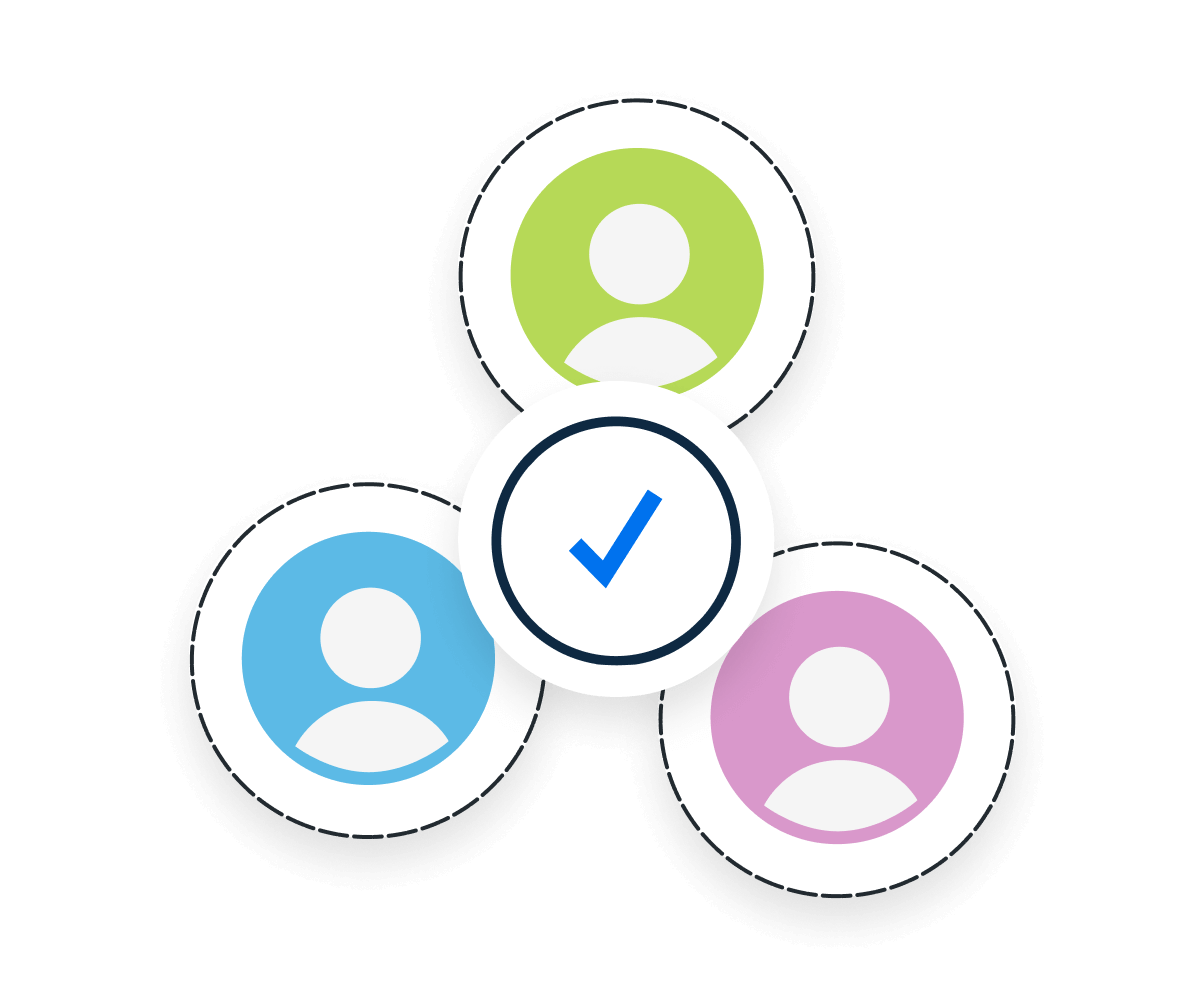
Why Rent and Utilities Are Key Operating Expenses
Rent and utilities are recurring operating expenses that keep the agency’s physical space functional and comfortable. For growing agencies, office space often represents a significant portion of the budget, so monitoring these expenses and ensuring they align with the agency’s financial goals is crucial.
Agencies must regularly review these costs to ensure they get the best value without overextending their budget, especially as remote work and flexible workspaces become more common in the industry.

Discover a Better, Faster Client Reporting Platform
Best Practices For Managing Operating Expenses
Managing OPEX is about maintaining balance—reducing unnecessary costs while ensuring essential services and operations continue smoothly. A well-planned approach ensures the agency runs efficiently and will scale without overextending its budget.
Align OPEX With Strategic Goals
Ensure that operating expenses are directed toward areas that support the agency’s long-term objectives. This alignment guarantees that OPEX investments fuel growth and productivity rather than draining resources.
Track OPEX Alongside Key Financial Metrics
Monitoring OPEX alongside other key metrics, such as profit margins and cash flow, helps agencies maintain a clear view of their financial health. Keeping OPEX in check ensures day-to-day operations remain sustainable.
Review Operating Expenses Regularly
Regularly reviewing operating expenses helps identify areas where costs may be reduced without sacrificing quality. This continuous improvement process ensures that the agency operates as efficiently as possible.
Differentiate OPEX from Capital Expenses
Understanding the distinction between operational expenditures and capital expenses is critical for accurate financial planning. OPEX covers daily costs like payroll and utilities, while capital expenses typically require substantial upfront investment in tangible and intangible assets. Correctly categorizing these costs ensures accurate budgeting and maximizes profitability over time.
Plan for Long-Term Sustainability
Operating expenses should be scalable to accommodate future growth. Investing in tools, technology, and employees that support long-term operational efficiency helps agencies scale sustainably.
Optimize OPEX for Revenue Generation
Operating expenses should directly contribute to the agency's ability to generate revenue. Focus OPEX investments on areas that drive growth, such as marketing, employee development, and client service enhancements. By ensuring that operating costs support revenue-generating activities, agencies improve profitability while maintaining operational efficiency.
Invest in Client Reporting and Grow Your Agency
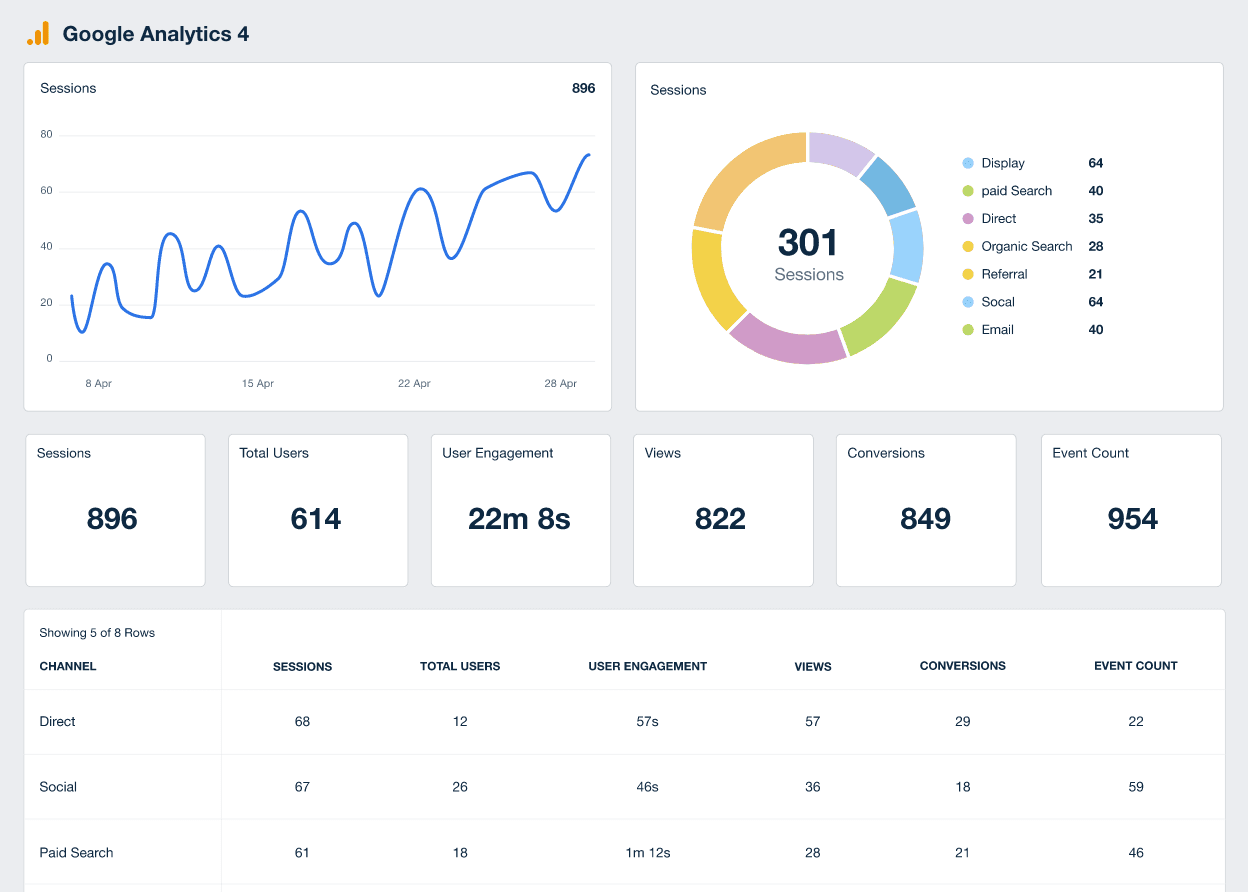
Related Integrations
How To Optimize Operating Expenses
Optimizing operating expenses ensures that agencies maintain efficient operations while maximizing profitability. These tips offer practical ways to reduce unnecessary business expenses, improve efficiency, and better allocate resources to areas that drive growth.
Separate Fixed and Variable Costs
To calculate operating expenses, begin by separating fixed and variable costs. Fixed costs, like rent or salaries, are consistent, while variable costs fluctuate based on business activities. Identifying this distinction helps agencies better manage cash flow and adapt spending to operational needs.
Prioritize Revenue-Supporting Activities
Focus on business expenses directly contributing to revenue growth, such as marketing or client services. Reducing unnecessary spending on non-essential operational activities ensures that capital is reinvested in areas that support business development and long-term profitability.
Regularly Review OPEX vs. CAPEX
Compare operating expenses with capital expenditures to ensure a balanced approach to financial planning. While OPEX covers daily operational needs, CAPEX focuses on long-term investments. Monitoring both helps avoid over-allocating resources to either category, ensuring sustainable growth.
Related Blog Posts
See how 7,000+ marketing agencies help clients win
Free 14-day trial. No credit card required.


